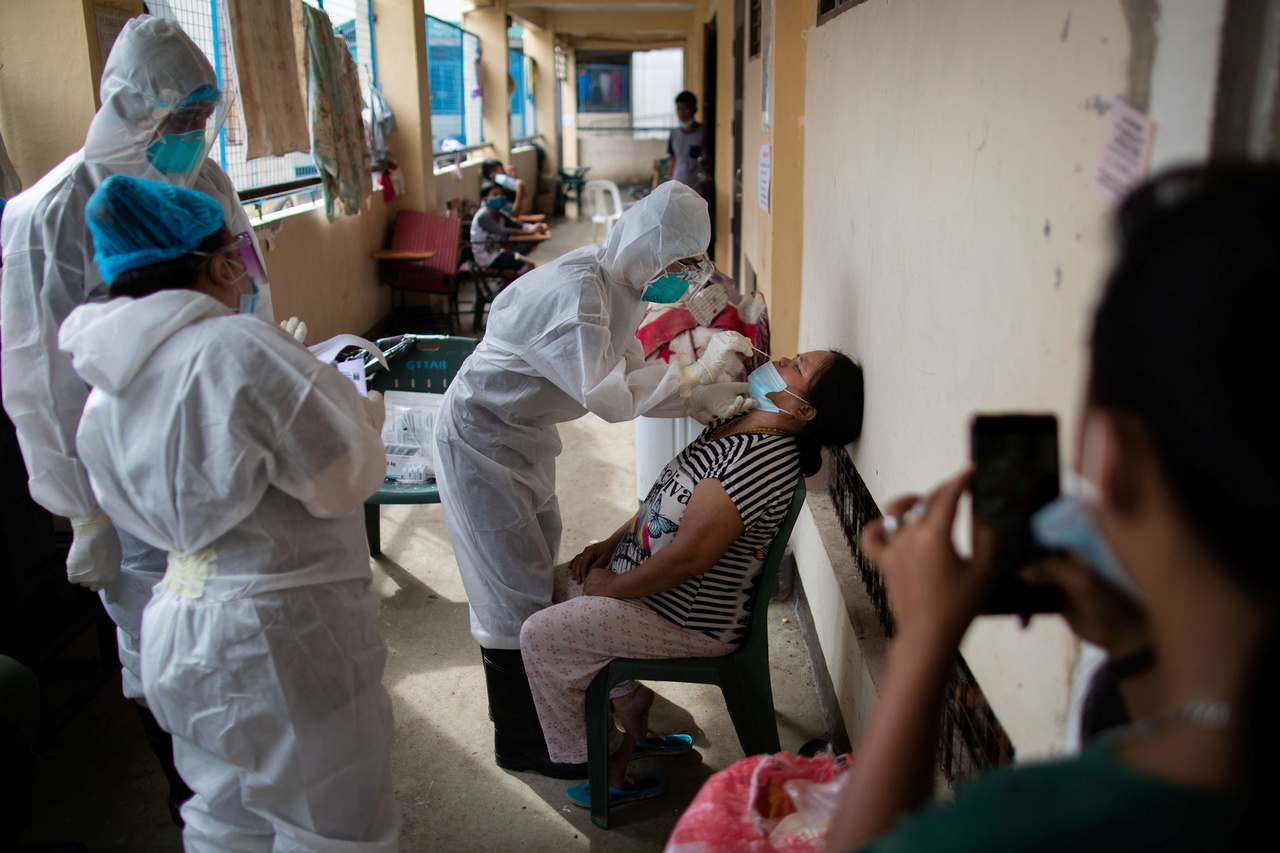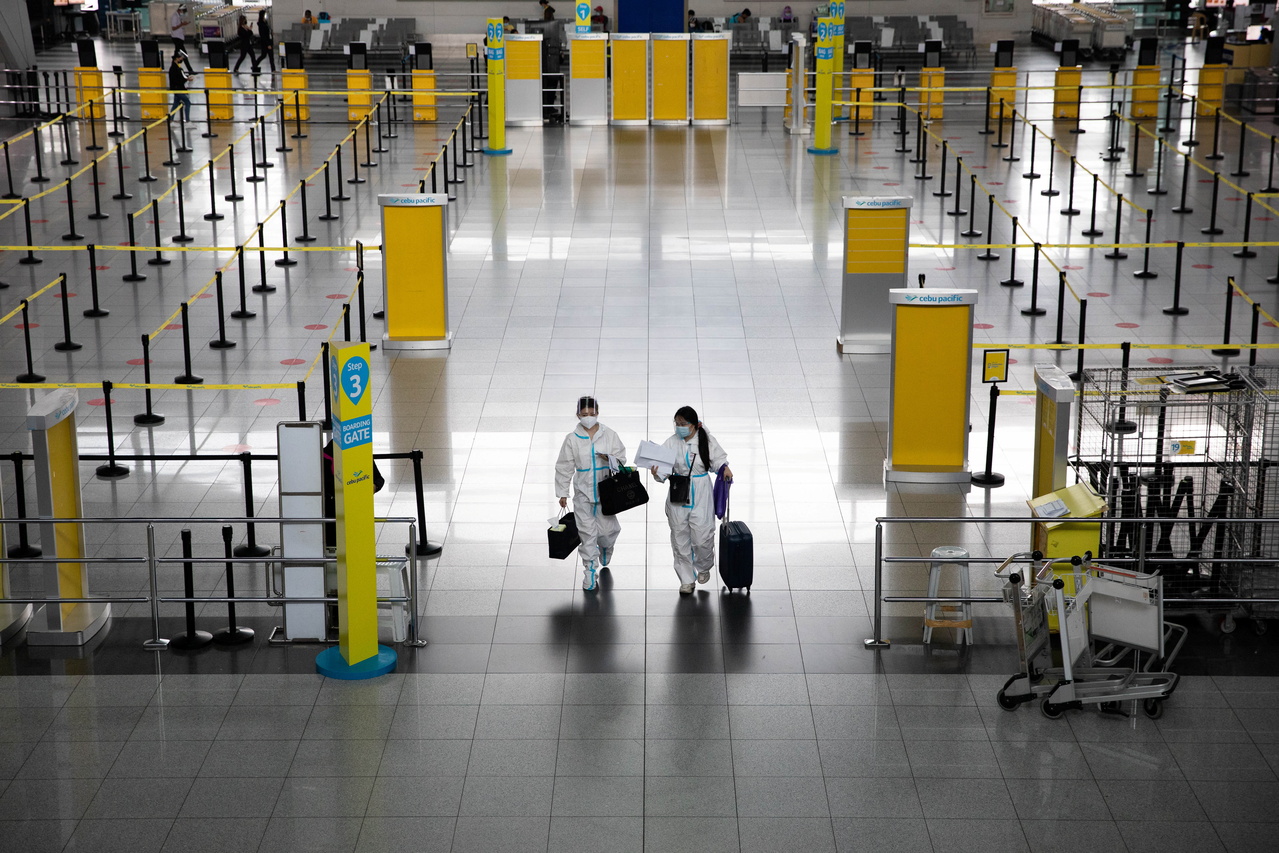16 new cases of more contagious variant of Covid-19 reported in the Philippines
Sign up now: Get insights on Asia's fast-moving developments

Health officials said the new variant had apparently been in the Philippines as early as Dec 10, 2020.
PHOTO: REUTERS
MANILA -The Philippines has now reported 16 new cases of the more transmissible variant of the coronavirus.
The Health Ministry said on Friday (June 22) that 12 of the 16 cases were recorded in Bontoc town, which is located in Mountain Province, over 400km north of capital Manila.
Two more Covid-19 infections by the same variant of the virus were found in La Trinidad town, in Benguet province, just south of Mountain Province, and in Calamba town, an hour's drive south of Manila.
The latter is an indication that the variant has possibly spread to the southern part of the country as well.
Both cases have not travelled abroad and have had no contact with an already confirmed case.
Two others were overseas Filipino workers who returned from Lebanon on Dec 29. They were taken to government-run quarantine facilities after they tested positive for the new variant, where they completed the mandatory two-week quarantine. They were discharged after testing negative.
The new variant is probably already circulating in Baguio City, an urban hub in northern Philippines that straddles the two hot zones of Bontoc and La Trinidad.
"We can safely assume that the variant is already in Baguio, considering inhabitants of Bontoc and La Trinidad come regularly to Baguio," said Benjie Magalong, the mayor of the city.
Meanwhile, a regional office of the Health Ministry in Cebu City, in central Philippines, said it was checking three likely cases of infection by the new variant.
The Philippines reported its first case of this variant - officially known as VUI-202012/01 or lineage B117 - on Jan 13. It was a 29-year-old real estate agent living in the capital who went to Dubai for business from Dec 27 to Jan 7.
He tested positive a day after arriving back to the Philippines from Dubai. He had travelled there with his girlfriend, who initially tested negative but was later found to be positive for Covid-19, though not with the B117 variant.
On Saturday (Jan 23), health officials said the new variant - first detected in Britain in September - had apparently been in the Philippines as early as Dec 10.
The case in Calamba town tested positive for Covid-19 on Dec 10, although it was not known at the time that he was carrying the new variant. It was discovered only after the Health Ministry began reviewing this week samples that had been submitted in October and November, to check if they contained the new variant.
Before that, the only positive samples that were sent for genome sequencing where those from travellers who arrived in the country in December from countries where the variant had been found.
"This was part of our due diligence, and it seemed like there was nothing else to be found (till the Jan 13 case surfaced)," said Dr Edsel Salvana, a consultant of a government task force dealing with new coronavirus variants.
He said this suggested there was no widespread transmission yet of the B117 variant.
"Right now, there's no evidence of a community transmission, but it doesn't mean it's not there," he said.
The British variant is believed to be 70 per cent more transmissible than previously circulating coronavirus variants.
A tentative finding by researchers in London suggests that it may be deadlier than the original, although the studies were very preliminary and relied on small numbers of deaths in hard-hit hospitals.
The Philippines has extended a ban on travellers from over 30 countries and territories where the British variant has been detected.
The ban remains in force until Jan 31. It includes travellers from Singapore, the United States, Britain, Japan, Australia, France, Germany, South Korea and China, including Hong Kong.
Returning Filipinos and expats with Filipino spouses or who have already taken residence in the Philippines are excluded from the ban, but they are required to go on a two-week quarantine and undergo a second swab test on the fifth day of their quarantine.

<p>Passengers wearing hazmat suits for protection against the coronavirus disease (COVID-19) walk inside the Ninoy Aquino International Airport in Paranaque, Metro Manila, Philippines, January 14, 2021. REUTERS/Eloisa Lopez</p>
PHOTO: X06751
Health experts in the Philippines warned that the new variant could raise the country's total coronavirus caseload 15 times.
Dr John Wong of health research institution Epimetrics said: "With our current reproduction rate of 1.1, 20,000 cases at the beginning of the month will be about 32,000 at the end of the month. But if the variant takes over, the 20,000 cases can become almost 300,000 cases by the end of the month."


